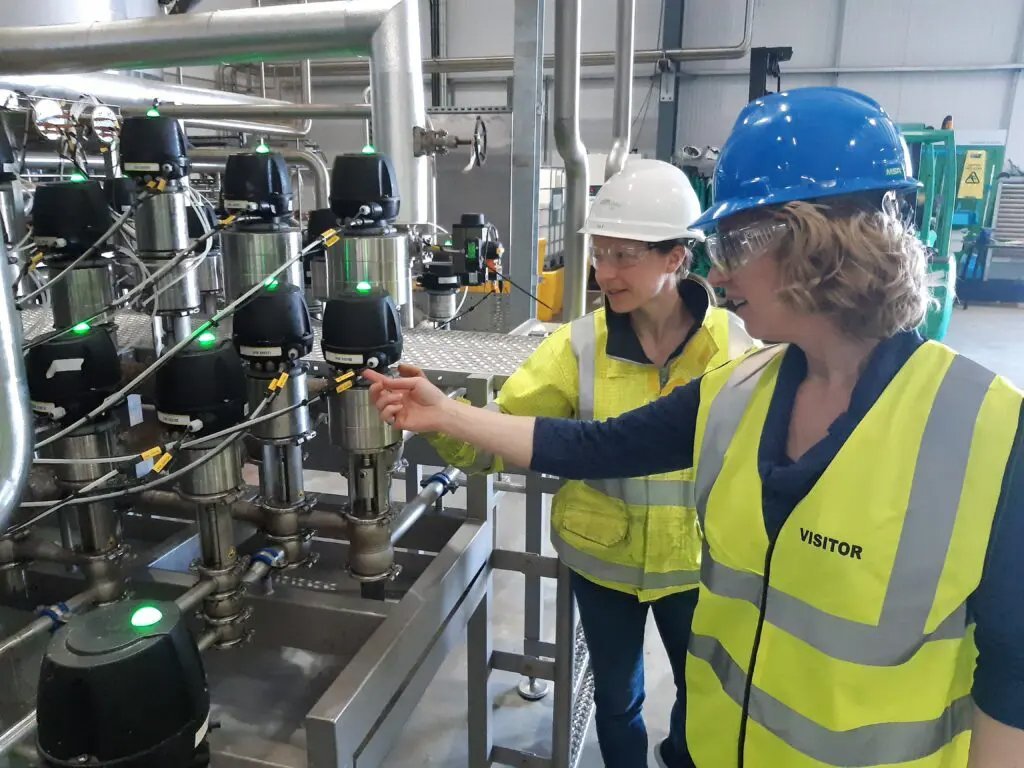Government Minister visits Celtic Renewables on launch of new Circular Economy Bill
Left to right- Alison McGill, Minister Lorna Slater, Prof Martin Tangney OBE
New legislation to tackle waste by improving recycling rates and increasing reuse has been published by the Scottish Government. The Circular Economy (Scotland) Bill was introduced by Lorna Slater MSP, the Minister for Green Skills, Circular Economy and Biodiversity. The ambition of a circular economy is to generate a society where products are used and re-used for as long as possible, maximising their value and minimising waste, and where by-products are captured and used to create additional valuable commodities.
Celtic Renewables are at the forefront of maximising the generation of value from biological residues, and on launching the new circular economy bill Minister Slater visited the company’s plant at Grangemouth to see first-hand how by-products of the whisky industry are processed into high-value low-carbon green chemicals that are used in our daily lives.
On her visit, Ms Slater, who has a background as an engineer working in the renewable energy sector, was given a guided tour of the plant by Celtic Renewables process engineer Alison McGill. The Minister was fascinated to learn how Celtic Renewables uses a naturally occurring biological fermentation process to generate economic value from whisky byproducts by producing green chemicals that directly replace petrochemicals, thereby maximising our use of nature’s resources and reducing our dependence on fossil fuels.
“There are huge economic opportunities in the circular economy, and we have already seen businesses in Scotland creating jobs by turning what we might otherwise throw away into valuable new products and services.”
— LORNA SLATER, MSP
Celtic Renewables has raised in excess of £50m to date, taking the innovation from University lab scale to now having built the first biorefinery in the country – the first of its kind anywhere in the world – where the pioneering company produces green acetone butanol and ethanol. These are used in a huge range of applications from health care to cosmetics, and in making them from sustainable resources, Celtic Renewables are a key part of growing a new biobased circular economy.
“This first commercial plant is the pivotal step to launching our ambitious international growth plans. It is the exemplar to building larger scale facilities across the country and internationally in the next 3-5 years, for which significant new investment and Government support will be required to realise the company’s bold ambitions for global deployment.”
— MARK SIMMERS, CEO CELTIC RENEWABLES


